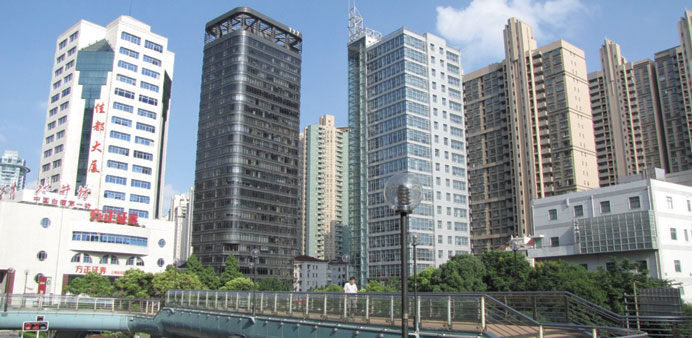Residential and commercial buildings are seen in Beijing. A whiff of desperation lingers over China’s property markets as government measures to prop up the property market fail to bring about a quick recovery.
Dow Jones/Beijing
A whiff of desperation lingers over China’s property markets. Investors betting on a quick real-estate recovery would be wise to consider the consequences.
Shares of China’s biggest listed developers rallied in July in response to moves by local governments to make it easier for buyers to purchase property. An S&P Index of China property companies is 15% higher than in late June. Loosening of curbs put in place since 2010, when prices were rising too quickly, it is thought, should attract skittish buyers back to the market. These included minimum down-payment requirements and curbs, especially on buyers of multiple properties.
Judging by how aggressive local governments have been to support their markets, however, there’s an alternate view: The situation is worse on the ground than investors suspect. Buyers may be less willing to reflexively jump back in on the government’s buy signal.
Last week the housing bureau in the southeastern province of Fujian announced a province-wide programme to insert itself in the market, directing local authorities, property developers, banks and construction firms to team up to rescue financially struggling projects. It added that eligible second-home buyers can enjoy the same preferential down-payment and mortgage rates as first-home buyers.
Shaoxing, a city of 5mn in Zhejiang province, recently became the first to lower the minimum down payment required for second-home purchases to 40% from 60%. Other governments are directly intervening in credit markets. Sichuan province said it would offer subsidies to banks that offer mortgage loans lower than or at benchmark rates to first-time home buyers.
These measures may provide some relief, but it’s likely to be tepid. Transaction volumes continue to fall, albeit at a less severe rate compared with earlier in the year. Prices are sliding, and inventories of unsold properties are high across China. A recent study by data tracker China Real Estate Index System showed that 17 Chinese cities have housing inventories that could take more than five years to digest. There’s also an oversupply of property developers in need of financial help.
Investors have taken local government easing moves as the beginning of the end of the property market’s woes. They might be better off taking it as a sign of how bad things really are.

